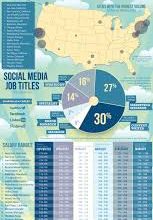A chief financial officer, sometimes known as a CFO, is an executive role that collaborates with the CEO and other executives to ensure a company’s success. For these individuals to find ways to boost an organization’s finances, they must possess strong accounting and financial abilities as well as years of relevant expertise. Understanding the precise actions you may take to get ready for it, such as the education and experience requirements, will help you start pursuing this career path.
In this article, we go over how to become a CFO, what they do, and provide answers to some often-asked issues.
How to Become CFO
An executive who manages a company’s financial operations is called the chief financial officer. The finance and accounting departments of the company were traditionally under the supervision of the chief financial officer (CFO), who also served as a “tick box” for management choices by ensuring timely and reliable financial reports, efficient cash flow, and compliance with regulations.
Nowadays, the function is considerably more proactive. A CFO uses financial data to dictate operational strategy, which dictates the direction and achievement of a firm.
What Does a CFO do?
A C-suite executive known as a chief financial officer (CFO) oversees the business’s finances and works to ensure their success and stability. They control resource allocation, capital and profit adjustments, and day-to-day financial activities. In order to forecast the effects of different operational actions, they could also work with the finance and accounting departments. A CFO may be responsible for a wide range of tasks, depending on the firm, including:
- Interacting with direct reports from the financial, customer service, and accounting areas
- Resolving accounting and financial problems
- Keeping track of correspondence with customers, investors, other business executives, and stakeholders
- Carrying out cash flow planning and management
- Monitoring and offering advice to the business’s finance department
- Managing risks, conducting audits, and collaborating with development research
- Finding chances for financial planning and investments that are relevant
- Collaborating to develop and manage a budget with other executives and department heads
- Putting together quarterly and yearly tax filings
- Being present at board meetings and submitting thorough financial reports and suggestions to the company’s leadership
How to Become a CFO
CFOs must possess a particular skill set and years of professional experience. Some employers might favor particular certifications and educational levels. The typical steps to becoming a CFO are as follows:
#1. Finish the Necessary Education
Many firms demand that applicants hold no less than a bachelor’s degree in a discipline relevant to finance. A bachelor of science in finance or accounting is a popular option for prospective CFOs, while economics or other business fields may also be useful. As you gain experience, think about enrolling in online short courses in strategic business management, compliance management, export, and import management, and business risk management. Greater awareness of analysis, budgeting, compliance, and risk management may be provided via these options.
#2. Get Professional Experience
While finishing your undergraduate courses, you can start gaining experience; but, it can also be crucial to developing your industrial skills after you graduate. To learn about the procedures and put specific duties you might be in charge of in the future to practice, think about undertaking an internship in accounting or finance. When you have finished your degree, look for entry-level jobs that will allow you to advance professionally or that will help you develop a solid skill set. Think about positions like:
- Assistant in accounting
- Employee accountant
- Prepares taxes
- Financial expert
#3. Look For Leadership Positions.
Considering the great level of power they hold, CFOs frequently possess exceptional leadership abilities. One may work in entry-level positions for a period of time before moving into management and other leadership positions to develop your own leadership abilities. You might use this as an opportunity to practice the team leadership and people management skills necessary for CFO responsibilities. Think about jobs in the accounting or treasury departments, like:
- Controller, finance director
- Manager of internal audits
- Accounting manager
#4. Think About a College Education
Consider pursuing advanced higher education as you gain professional leadership experiences, such as an MBA or a master’s degree in finance or accounting. Depending on your school, these programs can be finished in one to three years. Your company administration and financial management skills can be further developed by earning an advanced degree, which also gives you the opportunity to work on projects and case studies that will help you put theories into practice.
#5. Acquire Professional Credentials
Although a CFO may choose not to pursue professional certifications, many do so in order to demonstrate their knowledge and attract employees. For instance, many prospective CFOs enroll in CPA programs to increase their practical accounting and financial skills. Other credentials that can be useful to a CFO include chartered financial analyst (CFA) and certified treasury professional (CTP) designations. While the CFA program primarily covers investment research and portfolio management, the CPT certification may teach you how to handle treasury and financial analysis. Both of these credentials might show potential employers how committed you are to your professional development and how highly qualified you are.
#6. Engage in Industry Networking
As you gain expertise and rise through the ranks at your organization, think about expanding your professional network. You can meet other professionals and business leaders by participating in professional groups or networking at industry events. You can find new work options, professional development opportunities, and mentorship at this stage to help you advance your career.
#7. Make a Thorough Resume.
Make the most current, pertinent experiences stand out on your resume. To become a CFO, many businesses need at least eight to ten years of work experience in the accounting or finance department. Some people might also favor prior departmental leadership experience. Add your most advanced level of education as well as any measurable accomplishments you have made in your career. In order to urge employers to speak with people in your network about your influence and achievements, you can also add a skills section that lists your top certifications and a references section
CFO Salaries And Job Prospects
A CFO makes an average of $124,605 annually. The annual salary ranges from $29,000 to $295,000. The salary a CFO receives may differ based on the size, location, and sector of the company they work for. Earning potential may also be impacted by a candidate’s degree of education, experience, and pertinent certifications.
The pay in this industry is quite alluring. based on Salary.com. promotions, compensation, and profit-sharing plans may also be given to a CFO.
Education, supplementary abilities, qualifications, and years of professional experience in the position all have an impact on salaries. According to payscale’s comparable ‘pay by experience’ data, a CFO with 20+ years of experience might earn up to 63% more than a newcomer to the field.
The compensation you are offered may also depend on other elements, including the size of the firm and the sector in which your company operates. Salary and additional benefits for this employment vary by region and are frequently greater in urban areas and industrialized nations.
For the most senior executives, including CFOs, the BLS forecasted a 4% increase in overall employment between 2019 and 2029. Companies engaged in the healthcare and educational assistance sectors are anticipated to increase by 10% to 16% over a comparable ten-year period, with predictions for growth varying per industry.
There are currently roughly 218,300 open CFO positions each year. These job opportunities are a result of both general employment market activity and the approaching retirement of the baby boomer generation.
Despite these figures, the market for candidates for CFO and other C-suite positions is competitive, mostly because of their high salaries and prestige. This does not imply that the number of CFO openings has decreased. More managers and business owners’ teams require rapid and reliable data to detect trends, estimate productivity, and make important choices for growth as a result of the global epidemic and the significant changes affecting businesses globally.
Qualifications to Be a Chief Financial Officer
Being a chief financial officer requires some qualifications, which are as follows:
- An extensive grasp of accounting and finance.
- Managerial expertise.
- Knowledge of good investing methods.
- The capacity to analyze markets and produce financial forecasts.
- Powerful data analysis abilities.
- Experience making decisions based on data.
- Knowledge of the accounting and financial software programs used by their direct reports.
How to Become CFO of a Hospital
You need to have considerable educational and professional credentials to work as a hospital CFO. Before being eligible for a CFO position, you must have a bachelor’s degree and ten or more years of experience. A master’s degree in business administration or a master’s in healthcare administration are two examples of advanced credentials that many hospitals look for in their CFOs. A medical background is not necessary, although it could be useful when communicating with department heads and physicians. Strong leadership abilities and extensive financial and healthcare business understanding are important traits.
What Does a Hospital CFO Do?
Your duties as a hospital CFO or chief financial officer will include supervising and controlling the expenses and budget of a hospital or larger hospital system. Reviewing financial records, evaluating funding sources, and figuring out which divisions may increase efficiency while lowering expenses are among your duties. The chief financial officers of hospitals also bargain over billing and compensation with suppliers, employees, and insurance firms. You also spend time discussing and reporting on the hospital’s financial situation with the CEO, the board of directors, and the shareholders.
Salary of a Hospital CFO
The hospital CFO post will typically have a high salary as an executive position compared to both other professions in hospital systems and occupations in the U.S. as a whole. Hospital CFO may theoretically fall into one of two categories maintained by the U.S. Bureau of labor statistics (BLS): top executives or health and services managers.
According to the BLS, the median annual salary for top executives of a hospital CFO in 2019 was over $104,000. The predicted job growth rate for these positions from 2018 to 2028 was 6%, or roughly as fast as the average for all occupations, and there were around 2.6 million of these positions at that time.
The more specialized category of health and service managers had median wages in 2019 that were marginally less than $100,000. Their anticipated growth rate from 2018 to 2028 was 18%, which was significantly higher than that of senior executives.
Is It Hard to Become a CFO?
It takes time, effort, and expertise to become a chief financial officer (CFO), which is a long and difficult procedure. To become a CFO, you typically need at least 10 years of financial industry expertise.
What Is the Best Degree for a CFO?
A degree in accounting or a field closely linked to finance and accounting is required to become a CFO. Although it is advised to have education and experience in accounting and finance, some people pursue an MBA after earning a degree in business. After all, that is the main responsibility of a CFO.
How Old Is the Youngest CFO?
The 29-year-old David Knopf has been named the youngest CFO in Kraft Heinz’s history.
What Is the Lowest Paid CFO?
Depending on the area, the wage range varies greatly. For instance, a CFO in Keya Paha, Nebraska, close to the South Dakota border, might anticipate making the least amount of money in the nation ($284,250) and receiving a total pay package of ($354,259).
What Age Do Most People Become a CFO?
If becoming a CFO is your ultimate goal, you need to deliberately consider where you work and how to develop a network that will be of use to you. In spite of this, it takes years to advance to an executive position. At prestigious companies, the typical CFO is 50 or older.
Related Articles
- What Is CFA: Meaning, Requirements, Salary & Program
- HOSPITAL MANAGEMENT: Duties, Requirements, Salary, and Job
- How Virtual CFO Services Are Great for Your Business






